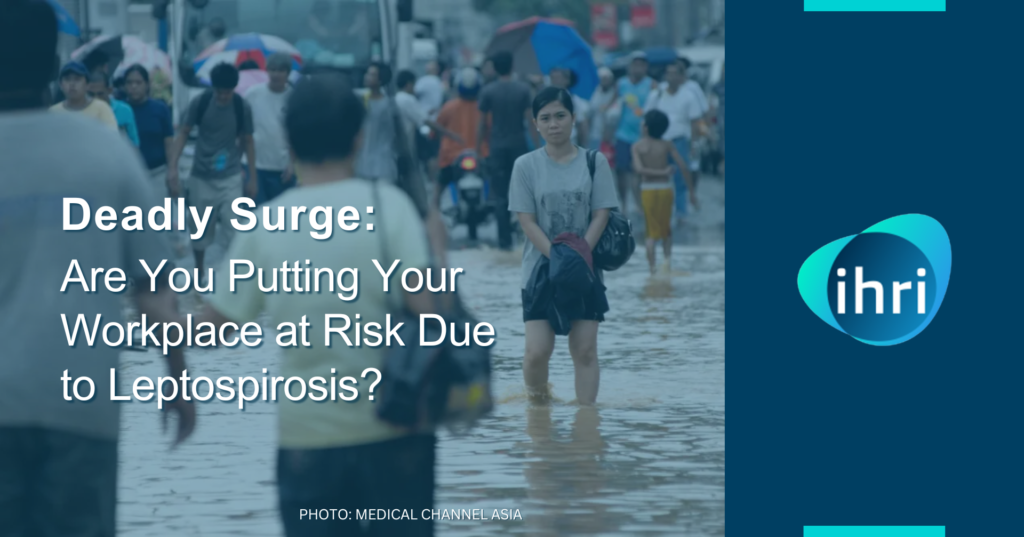In the Philippines, the recent surge in leptospirosis cases has highlighted the importance of workplace safety and employee health, especially during the rainy season. With over 2,100 cases reported from January to August 2024, and 224 deaths nationwide, leptospirosis has become a significant public health concern. In Metro Manila alone, cases have risen by 17% in recent weeks, exacerbated by floods from Typhoon Carina and the southwest monsoon.
Impact on the Workplace
The spike in leptospirosis cases is more than a health crisis; it also affects the workplace. Absenteeism due to hospitalization and recovery from the disease disrupts business operations, especially in industries where manual labor is essential. The Department of Health (DOH) emphasized the need for immediate medical attention if symptoms arise, as delays could lead to severe complications, including kidney failure.
Workplace productivity takes a hit when employees fall ill. Companies must recognize the financial and operational impact of health-related absenteeism, especially in high-risk areas prone to flooding. Implementing preventive measures not only safeguards employees but also ensures business continuity.
Preventive Measures for Employers
- Health Education: Employers should educate their workforce on the risks of leptospirosis, including how it is transmitted through contact with contaminated water. Providing information on symptoms such as fever, muscle pain, and jaundice can help employees seek early medical intervention.
- Provision of Protective Gear: Ensuring that employees who may be exposed to floodwaters are equipped with protective gear like boots and gloves can significantly reduce the risk of infection. For those in outdoor or fieldwork roles, this is especially critical.
- Safe Work Environment: Addressing environmental factors that contribute to the spread of leptospirosis, such as poor waste management, is vital. Encouraging cleanliness in and around the workplace helps mitigate the presence of rodents, the primary carriers of the bacteria causing leptospirosis.
- Access to Medical Support: Employers should facilitate access to medical consultations and prophylactic treatments. The DOH has made antibiotic prophylaxis widely available at government health centers, which can be a vital resource for employees who may have been exposed to floodwaters.
The Bigger Picture
The rise in leptospirosis cases is a reminder of the broader responsibility employers have in protecting their workforce from all forms of workplace hazards. Beyond leptospirosis, this extends to ensuring a safe working environment that minimizes risks of other infectious diseases, accidents, and injuries.
By prioritizing employee health and implementing preventive measures, companies not only comply with legal obligations but also foster a culture of care and responsibility. This proactive approach can enhance employee morale and retention, contributing to long-term business success.
In conclusion, as leptospirosis cases continue to rise, it is crucial for employers to take immediate action to protect their workforce. Preventive measures, education, and a focus on a safe working environment are key to mitigating the impact of this and other workplace hazards.
Becoming an Expert
International HR Institute provides global certification programs for modern-day HR professionals. Understand how you can prepare measures to ensure a safe working environment by taking the Certified Compensation and Benefits Professional certification program.


